We are on the cusp of a revolution in healthcare, driven by the integration of Artificial Intelligence (AI) into various aspects of medical care! In 2025, AI is not just a tool; it’s a transformative force that’s reshaping patient outcomes, diagnostics, and treatment methodologies.
The artificial intelligence healthcare market is growing rapidly, having been valued at $16.61 billion in 2024 and projected to reach $630.92 billion in 2033. This growth signifies the vast medical AI tools and their applications.
As we explore how AI is revolutionizing healthcare, we will look at its impact on diagnostic accuracy, personalized medicine, and administrative efficiency.
Key Takeaways
- The AI in healthcare market is expected to grow significantly by 2033.
- AI is improving diagnostic accuracy and personalizing medicine.
- Administrative tasks are being streamlined through AI applications.
- Over 90% of hospitals are anticipated to deploy AI-driven applications by 2025.
- AI can reduce drug discovery expenses by up to 70%.
The Current Landscape of AI in Healthcare
In 2025, AI in healthcare is becoming key! We see a big move towards using artificial intelligence healthcare to better care for patients and make things run smoother.
Healthcare groups are starting to use medical AI tools to automate tasks, get better at diagnosing, and tailor treatments. Technologies like robotic process automation (RPA) and intelligent automation (IA) are helping. They make routine tasks easier, so doctors can focus on what really matters.
2025 Market Size and Growth Statistics
The AI in healthcare market is growing fast, thanks to the need for better healthcare. By 2025, it’s expected to hit new highs, with a high growth rate over the years. This growth comes from more AI use in healthcare, like in diagnosis, treatment, and talking to patients.
Leading US Healthcare Institutions Adopting AI
Top US healthcare places are leading in using AI healthcare solutions. They’re adding AI to many parts of their work, like helping with decisions and managing patient data. They want to make care better, cut costs, and improve quality.
They’re using AI to look at medical images, guess how patients will do, and make treatments fit each person. AI isn’t just for clinical stuff; it’s also making admin tasks like billing and scheduling easier.
Breakthrough AI Diagnostic Technologies Transforming Patient Outcomes
AI diagnostic technologies are changing healthcare. They help find diseases early and treat them better. AI can quickly and accurately analyze huge amounts of medical data.
Early Disease Detection Systems
Finding diseases early is key to better treatment and outcomes. AI systems can spot early signs of diseases. They look at medical data like images and lab results for signs of disease.
For example, AI can find early breast cancer signs in mammograms. This helps doctors start treatment sooner.
Case Study: Mayo Clinic’s AI Cancer Screening Program
Mayo Clinic’s AI cancer screening is a great example. It uses AI to look at medical images. This has led to finding cancer early and improving patient care.
“The integration of AI in our cancer screening program has been a game-changer. We’re able to detect cancer earlier and more accurately than ever before.”
Advanced Medical Imaging Analysis
AI is also changing how we analyze medical images. It uses advanced algorithms to improve diagnosis accuracy. These algorithms find patterns and issues that humans might miss.
| Imaging Modality | AI Application | Benefit |
|---|---|---|
| MRI | Tumor detection | Early cancer diagnosis |
| CT Scan | Vessel analysis | Accurate cardiovascular assessment |
| X-ray | Fracture detection | Rapid orthopedic diagnosis |
How Radiologists Are Working Alongside AI
Radiologists are teaming up with AI to improve care. AI helps by pointing out issues in images. This lets radiologists focus on tough cases and make better decisions.
This teamwork is making diagnoses more accurate and workflows smoother. It leads to better care for patients.
Personalized Medicine Revolution Through AI
AI is changing personalized medicine by analyzing lots of data. This leads to treatments that fit each patient’s needs. It makes treatments work better and have fewer side effects.
Genetic Analysis and Treatment Customization
AI looks at a patient’s genes to understand their health. It finds the best treatments for each person. For example, in cancer, AI checks tumor genes to suggest specific treatments.
A study found AI in genetics is a big step for personalized medicine. It tailors treatments to each patient’s genetic makeup.
“AI-driven insights are revolutionizing the way we approach patient care, making it more precise and personalized.”
| Application | Benefit | Example |
|---|---|---|
| Genetic Analysis | Personalized Treatment Plans | Targeted Cancer Therapies |
| Treatment Customization | Enhanced Efficacy | Reduced Side Effects in Oncology |
Real-time Treatment Optimization Algorithms
AI’s real-time algorithms improve patient care even more. They keep checking patient data and adjust treatments as needed. This ensures patients get the best care.
Key benefits include better patient results and more efficient care. AI helps doctors make smart, data-based choices. This optimizes treatment plans in real-time.
- Enhanced patient outcomes
- More efficient healthcare delivery
- Data-driven decision making
How AI in Healthcare Is Addressing the US Staffing Crisis
AI in healthcare is changing the game, helping solve the US staffing crisis! AI is becoming a key tool for healthcare staff under pressure. It automates tasks and improves patient care, easing the workload on healthcare workers.
Virtual Nursing Assistants and Workflow Automation
AI is tackling the staffing crisis with virtual nursing assistants and workflow automation. These tools handle routine tasks like patient monitoring and data entry. This lets human staff focus on more complex care.
Virtual nursing assistants can do things like:
- Monitoring patient vital signs and reporting any anomalies
- Assisting with medication reminders and administration
- Providing basic patient care and support
Automating these tasks reduces staff workload, boosting job satisfaction and cutting burnout. A study found workflow automation can boost efficiency by up to 30% in healthcare!
Remote Patient Monitoring Platforms
Remote patient monitoring platforms are another key area where AI shines. These platforms let healthcare providers watch over patients outside of hospitals. This cuts down on hospital stays and boosts patient health.
AI analyzes patient data to spot issues early. This means healthcare providers can act fast, improving care and reducing staff workload.
Pharmaceutical Breakthroughs: AI-Accelerated Drug Development
The pharmaceutical industry is on the verge of a big change. This is thanks to AI in medicine! AI is looking through huge amounts of data to find new medicines. It’s making it faster and cheaper to get new treatments to people.
Reducing Clinical Trial Timelines
Artificial intelligence healthcare is making clinical trials better. It’s making them faster and more efficient. AI helps make smart choices by looking at data. This means companies can get results quicker.
AI-Discovered Compounds Entering Human Trials
Medical AI tools have found new medicines for human trials. AI can look at complex data in ways humans can’t. This is opening up a new world in drug making, with AI leading the way.
Regulatory Framework and Ethical Considerations for Medical AI Tools
AI is playing a bigger role in healthcare, and we need to look at the rules and ethics around medical AI tools. These technologies are becoming key to patient care. It’s important to make sure they are used safely and effectively.
FDA’s 2025 Guidelines for AI/ML-Based Medical Devices
The FDA has set 2025 guidelines for AI and ML in medical devices. These rules help guide the development, testing, and use of AI in healthcare. They focus on being open, monitoring performance, and managing risks.
These guidelines are a big step towards controlling AI in healthcare. They help ensure that AI devices are safe and work well. This will help improve patient care and outcomes.
Addressing Algorithmic Bias and Data Privacy Concerns
AI is becoming more common in healthcare, and we must tackle bias and privacy issues. It’s vital that AI systems are fair, transparent, and unbiased. We also need to protect patient data with strong privacy measures.
- Regular audits to detect and mitigate bias
- Transparent data usage policies
- Robust cybersecurity measures to protect patient data
By tackling these issues, we can make AI in healthcare better. This will lead to better patient care and more trust from healthcare workers and patients.

Conclusion: The Future Trajectory of AI in Healthcare
Looking ahead, AI in healthcare is set to change the game. It will make care better and more personal. AI will help with everything from finding diseases early to making medicine just for you.
AI will also make healthcare work better, not just for patients but for everyone involved. We’re looking forward to how AI will make healthcare easier to get and better for everyone.
The future of AI in medicine is very promising. AI will keep getting smarter and more useful in healthcare. We’ll keep sharing the latest news and insights on AI in healthcare with you.

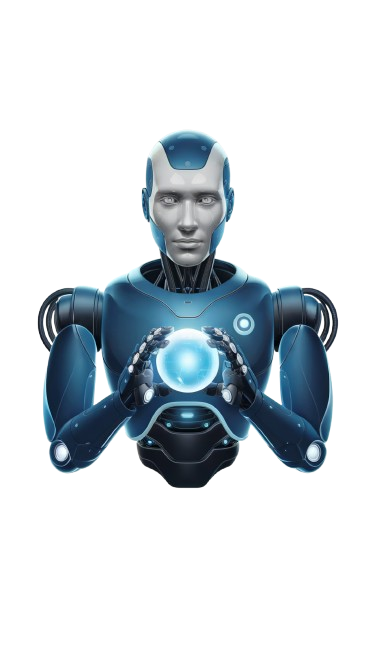



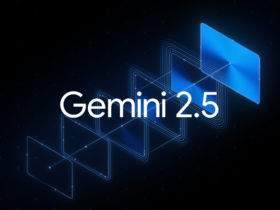
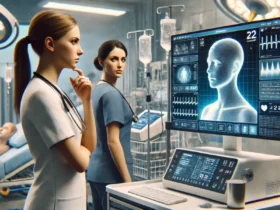
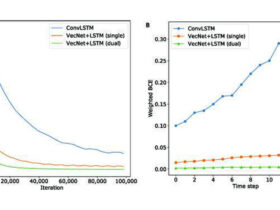

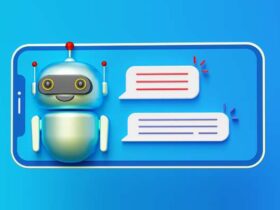
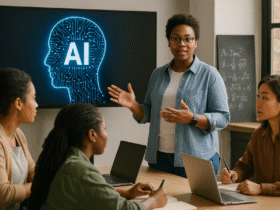

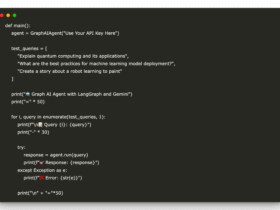
Leave a Reply